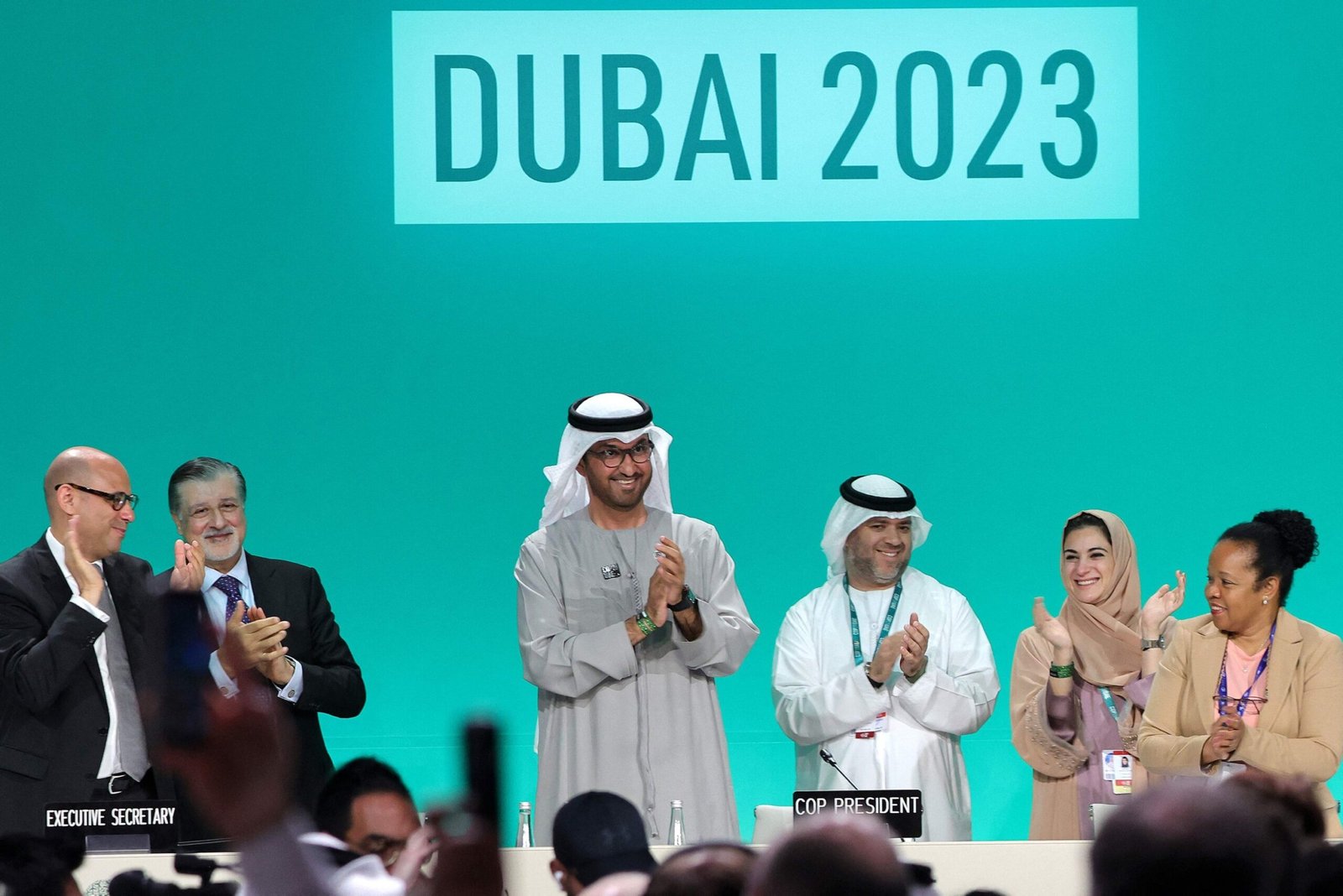Ministers from over 200 countries came to a historic agreement on Wednesday to move away from fossil fuels at the COP28 summit, which is being held in Dubai.

Ministers from over 200 countries came to a historic agreement on Wednesday to move away from fossil fuels at the COP28 summit, which is being held in Dubai. As stated by the UAE chair of the meeting, the agreement, dubbed the UAE Consensus, represents a paradigm change that may reshape world economies.
Amidst controversies, geopolitical conflicts, and escalating extreme weather events, the conference in Dubai garnered attention for its bold moves towards sustainability. The UAE summit presidency highlighted unprecedented achievements, including a global commitment to triple renewable energy capacity and double energy efficiency, declarations on agriculture, food, and health, and notable participation from oil and gas companies addressing methane emissions.
The updated proposal, agreed upon after intense overnight discussions, outlined a vision for transitioning away from fossil fuels in energy systems. The plan emphasizes a just, orderly, and equitable transition, accelerating actions to achieve net-zero emissions by 2050, aligning with scientific recommendations.
While the proposal called for a phase-down of unabated coal power and ambitious targets for renewable energy and energy efficiency improvements, it notably did not mandate an absolute phase-out of hydrocarbons. The distinction between “phase-out” and “phase-down” became a focal point during the negotiations, with the former implying a complete elimination and the latter suggesting a reduction in usage without an absolute end.
The COP28 summit faced challenges, particularly from young climate activists advocating for a complete phase-out of fossil fuels. Licypriya Kangujam, a 12-year-old climate activist, interrupted a summit event with a sign that read, “End Fossil Fuel. Save Our Planet and Our Future.”
The burning of coal, oil, and gas, responsible for over three-quarters of global greenhouse gas emissions, has been a critical issue at the forefront of climate negotiations.
Earlier in the talks, a draft text sparked widespread criticism for its omission of language on ending fossil fuel use. The absence of a clear commitment to a phase-out or phase-down led to arduous discussions. Wopke Hoekstra, EU commissioner for climate action, emphasized the diplomatic efforts made to bridge divisions among policymakers globally.
Alok Sharma, the U.K.’s COP26 president, had stressed the importance of a deal with clear language on the phase-out of fossil fuels to limit global warming to the aspirational 1.5 degrees Celsius threshold set in the Paris Agreement.
The final announcement on Wednesday received mixed reactions. While some praised the agreement as a significant step toward the end of the fossil fuel era, others expressed disappointment at the failure to address a phase-out explicitly.
U.N. climate chief Simon Stiell acknowledged progress but highlighted that the world is still headed for just under 3 degrees of warming, leading to mass human suffering. Despite the positive signals sent by the COP28 agreement, it is clear that further action is needed to accelerate the transition.
U.S. special climate envoy John Kerry welcomed the agreement and announced that the United States and China would update their long-term strategies based on initiatives set out in the global stocktake decisions. However, details of these strategy adjustments were not immediately disclosed.
The COP28 summit also faced scrutiny over statements from its president, Sultan al-Jaber, who claimed there was “no science” behind calls for a phase-out of fossil fuels. Al-Jaber’s dual role as the head of the state-run Abu Dhabi National Oil Co. raised eyebrows and added controversy to his leadership.
In an unprecedented move at the beginning of the summit, delegates sealed a landmark deal to help the world’s most vulnerable countries cope with the impacts of climate disasters. The operationalization of the loss and damage fund received widespread applause and set a positive tone for subsequent negotiations.
Throughout the conference, various initiatives were launched to decarbonize the energy sector, with governments pledging to triple renewable energy capacity, expand nuclear power, and reduce methane emissions. Despite the compromises made, the COP28 summit represents a crucial step in the global effort to address climate change and transition towards a sustainable future.